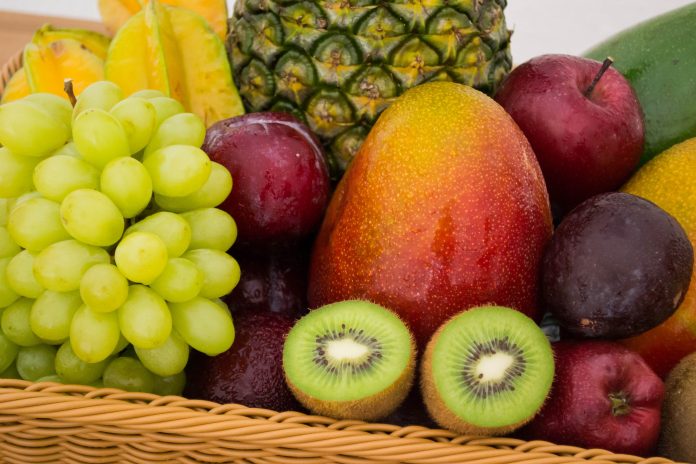An apple as a snack. A baked sweet potato for your dinner. You may be eating plenty of fruit and vegetables as part of a balanced, healthy diet, but if you’re peeling them, did you know you may be missing out on a large portion of their nutritional value? While there may be reasons to peel your apples, pears, carrots or potatoes – such as to get rid of pesticide residue for example – the nutritional benefits of leaving the skin on could outweigh the reasons for eating them with skin off. Here are six reasons not to peel your fruit and veg:
- They increase your vitamin and mineral intake
The peels of fruit and vegetables like apples and potatoes are rich in vitamins and minerals such as vitamin A and C, calcium and potassium. While the specific nutritional content of the peel varies depending on the particular fruit or veg you’re eating, in general if you eat the unpeeled version, you’re getting more goodness into your system. For example, the US Department of Agriculture says that a raw apple with its skin on contains up to 322% more vitamin K, 142% more vitamin A, 115% more vitamin C, 20% more calcium, and up to 19% more potassium than its peeled version. It also found that a cooked potato with its skin still on has up to 175% more vitamin C, 115% more potassium, 111% more folate, and 110% more magnesium and phosphorus than a peeled one.
- They’re packed with fibre
Fruit and veg peels are an excellent source of insoluble fibre, which is crucial for ensuring gut health and preventing things like constipation. Unlike soluble fibre which dissolves in water, insoluble fibre adds physical bulk which helps to speed up the removal of waste from your gut. This bulk also makes you feel fuller for longer, which can help with weight loss goals if you’re restricting your calories and exercising portion control. Again, the exact fibre amount you’re getting depends on the particular item you eat, but the peels of fruits like guava and tomatoes and vegetables like aubergines are especially high in insoluble fibre.
- They contain antioxidants
Antioxidants are molecules that fight free radicals in your body, which when found in high levels can cause oxidative stress on the body and increase your risk of developing diabetes, heart disease and cancer, as well as neurological diseases such as Alzheimer’s. Antioxidants counter the effects of these free radicals, thereby lowering your risk of developing these health problems. But here’s the thing: in many fruits and vegetables, these antioxidants tend to be concentrated in the outer layer – so peeling them means you’re missing out.
- They can be medicinal
Some peels that we’d normally consider inedible in their whole form have exceptional health benefits. Citrus peels like those of oranges, lemons and grapefruit contain large amounts of flavonoids, which have many medicinal benefits such as being anti-cancer, anti-inflammatory and antiviral. To make them more pleasant to eat you could grate them and use them as zest, or cut them into strips and add them to salads or smoothies, or even turn them into treats like orange marmalade or lemon curd. You can also benefit from using them on your skin too, thanks to their antibacterial and antimicrobial properties. When applied topically – such as ground up into a paste and used as a face mask – they can improve pigmentation, inflammation and even increase the skin’s elasticity to reduce signs of ageing.
- It benefits other areas of your life
Eating healthily in this way can have a broader impact on your health and wellbeing – which means you have more energy, a brighter outlook on life, and even healthier finances too. After all, being healthy means you’re less likely to develop an illness or need to be hospitalised for a chronic condition, which means you’ll have fewer medical bills to contend with. It can also mean you have more medical savings available if you belong to a medical aid such as Fedhealth, where you choose how much you set aside for your savings depending on your individual health needs.
- It’s more convenient
In our busy, modern lives, saving time on food prep can be a huge win, so not having to peel your vegetables and fruit can be a bonus. Think shorter times to prepare school lunches or dinners – and the skin on means you’ll preserve the natural moisture in them too.
In many cases, such as with avocadoes or pineapple, the skin is simply too rough or prickly to eat. While in other cases, people may peel items in order to get rid of the residue of pesticides that could be on them. However, it’s worth considering that peeling isn’t completely fool-proof, so these pesticides may still reach inside the fruit. Because of this, it’s more worthwhile to try and source organic food that limits or even cuts out the use of harmful chemicals for pest control. Beyond this, you can also remove much of the pesticide residue by washing – so invest in a good scrubbing brush to wash them thoroughly before eating them – peel on of course!






